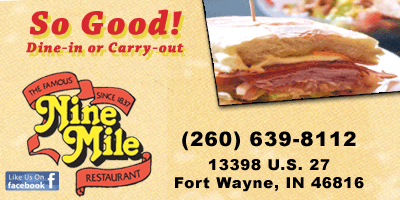OUTLINING A MEMOIR OR BIOGRAPHY
Recently I was invited to speak at a conference attended by directors of extended care facilities and retirement communities. According to them, many retirees have a strong desire to put their life stories on paper before they pass away so that the lessons they learned in life can be handed down to younger generations. Additionally, family members who enjoy assembling a family tree and preserving a family’s heritage and legacy desire to know how best to interview their aging relatives. To that end, let me share the outline I offered these folks regarding what to ask, what to investigate, and what to preserve.
Focus on Key Family Issues
Weddings, anniversaries, births, and deaths should be discussed first, for this will create a framework of years to be focused upon. Give special attention to anything extraordinary, such as the birth of triplets, second marriages and blended families, and golden wedding anniversary parties. Next, talk about major purchases. For many people there are strong memories of buying a first car, a first home, a long-desired piano, or even an early version of a computer.
Graduations should cover high school, college, grad school, or trade school, but also any specialty training, such as culinary school or art school or advanced military courses. Memberships in organizations should be discussed, such as Future Farmers of America, or the Parent-Teacher Association, or the American Legion, as well as positions held with unions or political parties or even neighborhood associations. Talk also about church affiliations, and go beyond church membership to include activities such as teaching Sunday school, helping with vacation Bible school, serving on a deacon or elder board, and singing in the choir.
A discussion of sports should cover championship teams, trophies, heartbreaking defeats, tournaments, and scholarships. Hobbies and talents should include art, music, gardening, coin or stamp collecting, and other special interests. Travel memories should include a honeymoon, family vacations, business trips, military assignments, school field days, and mission trips.
Recalling Major Historical Events
Ask about major celebrations, such as the end of a war, the landing on the moon, a special World Series victory, or the election of the first African-American President. Conversely, ask about major tragedies, such as the Kennedy assassination, the explosion of the Challenger, and 9-11. Ask about major transitions folks recall, such as the days of “Rosie the Riveter” when women ran the factories in World War II or the Women’s Liberation Movement and the “British Invasion” of recording artists during the 1960s. Ask about role models, such as Ghandi, Harper Lee, Jonus Salk, Martin Luther King, Jr., or Sally Ride. Further, ask about major technological and scientific breakthroughs, such as color TV, transistor radios, space exploration, heart transplants, cell phones, online shopping, and computer dating.
Great lessons learned
Ask about how the individual’s views and opinions have changed or expanded regarding such topics as friendships, love, money, education, marriage, child rearing, and politics. Also, ask how this person developed and followed wishes, dreams, goals, and long-range planning. Discuss what books most influenced this person, and why. (Many people will mention the Bible, but get them to be specific about what stories or psalms or sermons or parables were of specific importance to them.) Likewise, ask the person to name the people who were his or her greatest mentors (and why), including teachers, pastors, coaches, scout leaders, bosses, family members, neighbors, and military superiors.
Writing Style and Research
Along with first-hand interviews, additional research can help fill in gaps. Make an effort to locate family photo albums, diaries, journals, recipe books, business documents, report cards, and personal and business correspondence. Read plaques, awards, commendations, medals, and saved newspaper clippings. Find high school yearbooks, military scrapbooks, and family budget records. Look in attics to find uniforms, board games, toys, old family movies, holiday decorations, photograph records, bridal gowns, woodworking projects, and school texts.
Be sure to use an audio or video taping device when conducting your interviews. When preparing the memoir or biography, don’t just transcribe notes. Insert dates, places, references, events, people’s full names, and pertinent news developments. Single out anecdotes, life lessons, funny stories, and epiphanies to share with readers. Write in one point of view. If you tell it from the perspective of the person talking, keep it in his or her voice. However, if you wish it to be more of a generic biography, you can write it as omniscient author, inserting additional data that will be supportive of the overall story.
Keep in mind that a variety of magazines are seeking profiles of interesting elderly people, articles about interesting historical events, and entertaining memories of bygone eras. Good Old Days, Looking Back, and Reminisce buy freelance pieces, and several military magazines, family periodicals, and archive publications also buy freelance articles related to earlier eras.
Elderly people are reservoirs of dramatic tales, marvelous comedies, heartrending love stories, and inspiring motivational epics. Sit down, flip on a recording device, and let the sagas pour forth.
- What To Know About Mosquito Season - July 19, 2024
- Local Worship & Events: July 19 Update - July 19, 2024
- Allen County Bar Foundation Announces Scholarship Winners - July 19, 2024


